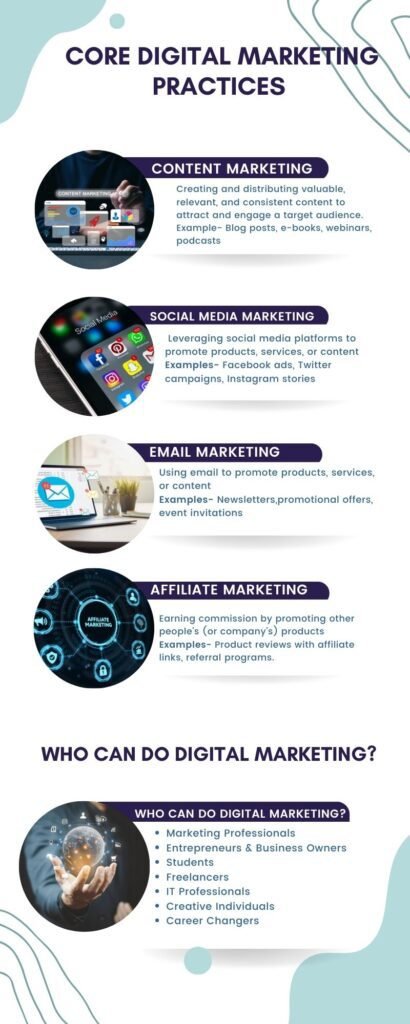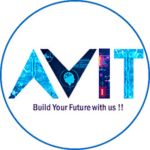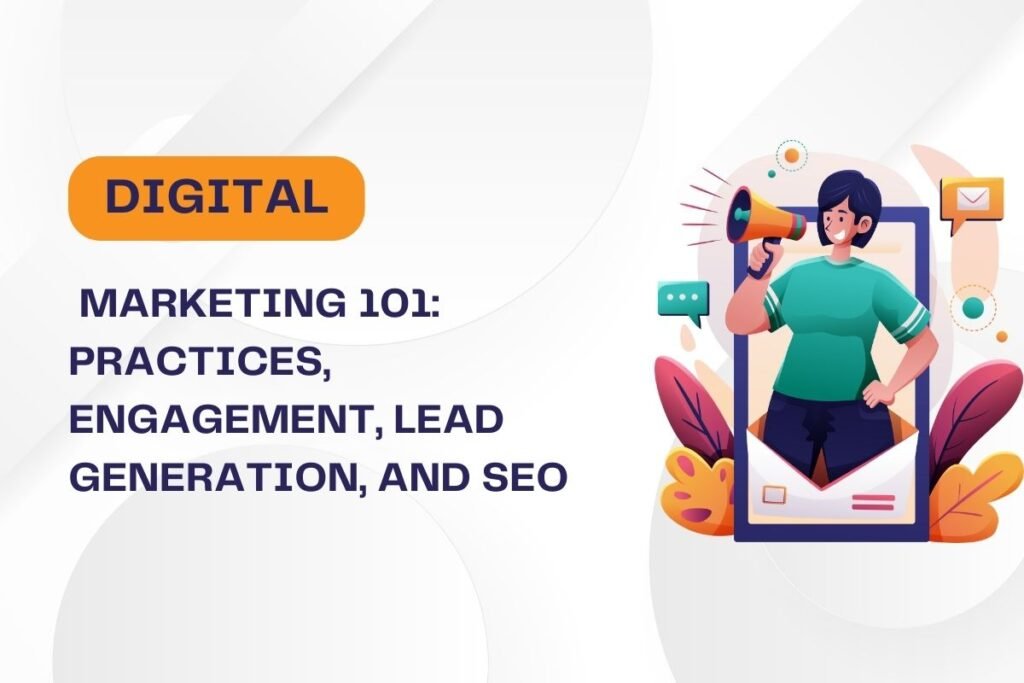Digital Marketing 101: Practices, Engagement, Lead Generation, and SEO
Digital marketing is no longer the future – it’s the now. In a world driven by online interactions, businesses need a robust digital presence to thrive. With the vast array of platforms and strategies available today, diving into digital marketing can seem daunting. This blog aims to simplify the process, guiding you through key practices, customer engagement tactics, lead generation techniques, and the art of SEO.
1. What is Digital Marketing?
Digital marketing is the use of online-based digital technologies to promote products, services, and brands. Unlike traditional marketing, which relies on physical channels (like print or television), digital marketing campaigns are primarily executed online.
Table of Contents
2. Core Digital Marketing Practices

a. Content Marketing:
- Definition: Creating and distributing valuable, relevant content to attract and engage a target audience.
- Examples: Blog posts, e-books, webinars, podcasts.
b. Social Media Marketing:
- Definition: Leveraging social media platforms to promote products, services, or content.
- Examples: Facebook ads, Twitter campaigns, and Instagram stories.
c. Email Marketing:
- Definition: Using email to promote products, services, or content.
- Examples: Newsletters, promotional offers, and event invitations.
d. Affiliate Marketing:
- Definition: Earning commission by promoting other people’s (or company’s) products.
- Examples: Product reviews with affiliate links, and referral programs.
3. Customer Engagement
Engagement is the heart of digital marketing. Here’s how to master it:
a. Know Your Audience: Use analytics tools to understand your audience’s demographics, behaviors, and preferences.
b. Interact: Respond to comments, host Q&A sessions, or organize webinars.
c. Personalize Content: Tailor your content to suit different audience segments.
d. Use Video: Video content, especially live streaming, can significantly enhance engagement levels.
4. Lead Generation
Transforming a casual visitor into a potential customer is the essence of lead generation:
a. Optimized Landing Pages: Ensure your landing pages are clear, concise, and have a compelling call-to-action.
b. Lead Magnets: Offer something of value (e.g., a free e-book) in exchange for contact details.
c. Chatbots: Use AI-driven chatbots to engage visitors and gather information.
d. Retargeting: Use cookies to track visitors and retarget them with relevant ads.
5. SEO (Search Engine Optimization)
SEO is the art of optimizing your online content so that search engines are more likely to show it as a top result for searches of a certain keyword.
a. Keyword Research: Understand what terms your potential customers are searching for.
b. On-Page SEO: Optimize individual pages for specific keywords. This includes the content, meta title, meta description, and URL structure.
c. Off-page SEO: This involves external factors like backlinks from other websites.
d. Technical SEO: Ensure your website’s backend structure is optimized, including site speed, mobile optimization, and structured data.
Digital marketing, with its vast and varied landscape, offers opportunities for individuals from diverse backgrounds. But who can really get into digital marketing, and what qualifications or studies might be beneficial? Let’s delve into it.
6. Who Can Do Digital Marketing?
Almost Anyone! Yes, you read that right. Whether you’re a fresh graduate, someone looking for a career shift, or a business owner wanting to boost your brand’s online presence, digital marketing is accessible to all. Here are some potential candidates:
a. Marketing Professionals: Those already in the traditional marketing domain can easily transition to digital.
b. Entrepreneurs & Business Owners: To grow their businesses online.
c. Students: Looking to start a career in a dynamic and ever-evolving field.
d.Freelancers: Seeking flexible work options.
e.IT Professionals: Their technical knowledge can be an asset, especially in areas like SEO and analytics.
f. Creative Individuals: Writers, designers, and videographers can thrive in content creation and design aspects of digital marketing.
g. Career Changers: Individuals from entirely different fields who are keen on transitioning to a tech-savvy domain.
7. What Studies or Professional Backgrounds Are Beneficial?
While you don’t necessarily need a specific degree to get into digital marketing, certain educational backgrounds can be advantageous. Here’s a list:
a. Marketing & Business Degrees: A foundational understanding of marketing principles can be beneficial.
b. Communications & Media: This background aids in content creation, public relations, and social media marketing.
c. IT & Computer Science: Useful for the technical aspects of digital marketing, such as website development, SEO, and data analytics.
d.Graphic Design & Multimedia: For roles focused on visual content creation, web design, and video marketing.
e.Psychology: To understand consumer behavior and improve user experience.
8. Courses & Certifications:
While formal education can help, various courses and certifications are tailored specifically for digital marketing:
- Google Analytics Certification: For those interested in data and analytics.
- HubSpot Content Marketing Certification: Focuses on effective content marketing strategies.
- Facebook Blueprint: For mastering Facebook advertising.
- SEO Training Course by Moz: For those keen on search engine optimization.
- Digital Marketing Specialization by Coursera: A comprehensive course covering all aspects of digital marketing.
9. Skills to Cultivate:
Beyond formal education and certifications, here are some skills that will serve you well:
- Analytical Thinking: To understand and interpret data for decision-making.
- Creativity: For content creation and campaign ideation.
- Technical Proficiency: Basic understanding of platforms, tools, and technologies used in digital marketing.
- Adaptability: The digital landscape is ever-changing. Being adaptable is crucial.
- Strong Communication: Essential for content creation and team collaboration.
Conclusion:
Digital marketing is a democratic field. While certain backgrounds might give you a head start, passion, continuous learning, and adaptability are the real keys to success in this domain. Whether you have a related degree or not, with the right mindset and skills, the digital marketing world is your oyster!
Digital marketing, with its vast spectrum of strategies and platforms, offers unprecedented opportunities to engage with audiences, generate leads, and drive conversions. However, the key is to remain updated, as the digital landscape is ever-evolving. Whether you’re a seasoned marketer or a newbie, continuous learning and adaptation are the keys to success in the digital realm. Happy marketing!
Digital Marketing 101: Practices, Engagement, Lead Generation, and SEO Read More »
























